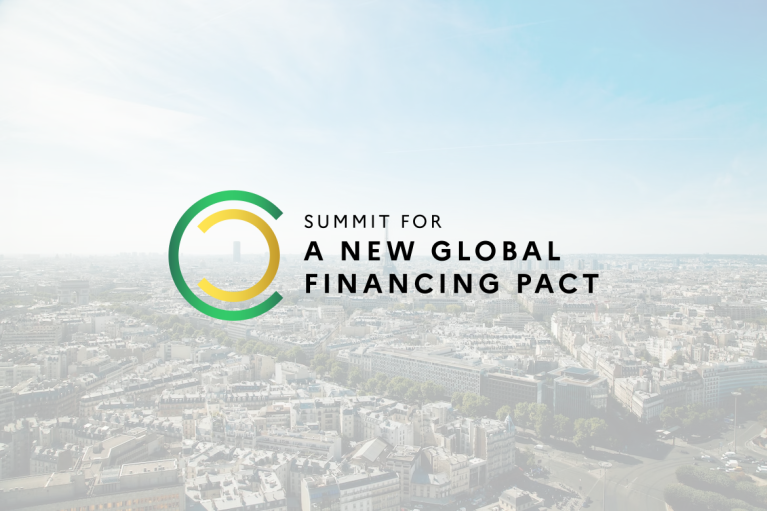Finance for a just renewable energy and green hydrogen economy

Title: Finance for a just renewable energy and green hydrogen economy
Date: 22 June 18:00–19:00
Location: OECD Conference Centre (Auditorium), La Muette, Paris
R.S.V.P.: Ines Marques (ines.marques@gh2.org)
We are pleased to invite you to a Paris Summit high-level meeting aimed at mobilising financing commitments for renewable energy and green hydrogen in the leadup to COP28.
The meeting will consider concrete and practical ways to de-risk and provide blended finance solutions for green hydrogen projects in developing countries, and discuss the innovative financing instruments needed. It will serve as a sector-specific effort in the wider development and climate finance reform agenda, within the Bridgetown Initiative.
Discussion with
- Mr. Harry Boyd-Carpenter, Managing Director, Climate Strategy, EBRD
- Mr. Charles Haworth, Chief Operating and Financial Officer, CWP Global
- Dr. Frannie Leautier, Expert Chair of the Independent Review of MDBs’ Capital Adequacy Frameworks
- Dr. Mohamed Salem Ould Merzoug, Minister of Foreign Affairs, Mauritania
- Ms. Mathilde Mesnard, Deputy Director of the Environment Directorate, OECD
- Hon. Ali Mohamed, Climate Change Envoy of Kenya
- Dr. Mahmoud Mohieldin, UN Climate Change High-Level Champion for Egypt and Executive Director at the International Monetary Fund
- Mr. Vivek Pathak, Director and Global Head for Climate Business, IFC
Agenda
- The need for the multilateral development banks to crowd in private capital to get large-scale renewable and green hydrogen projects to final investment decision
- Financing needs for developing countries and key messages for G20 and COP28
- Financing and de-risking measures needed to raise private capital for project development
- New opportunities and financing vehicles to mobilise private capital
- Development finance reform actions and the way towards a “new global financing pact” for the green hydrogen economy
Context
The Nouakchott Message to the Bridgetown Initiative was agreed by a group of African governments, project developers, development finance institutions, and civil society which met in Mauritania in April 2023. Based on the report “Getting the right blend” and in order to mobilise USD 1 trillion by 2050, it calls on development finance institutions and their shareholders to support a just renewable energy and green hydrogen economy in developing countries in time to tackle climate change.
By 2050, global demand for hydrogen could increase by almost seven times.1 To meet this drastic increase in demand, a significant number of projects will need to become operational in developing countries and emerging economies where conditions for production are favourable.
To date, only a small part of the US$1.2 trillion investment in hydrogen supply and use that is needed between now and 2030 has been committed by public and private institutions.2 Meeting the green hydrogen ambitions of six leading African countries alone would require up to US$55 billion in investment by 2030 and US$900 billion by 2050.3 In addition, the hydrogen value chain presents a complex landscape requiring capital-intensive investments, ranging from the generation of renewable electricity to transport and storage infrastructures and to the production of hydrogen-derived products such as steel and fertilisers.
To foster a conducive investment climate in the renewable energy sector, it is incumbent upon governments to create enabling conditions for investment through sustainable policies, frameworks, and policies. This can position green hydrogen competitively in the global market and enable projects to realise the socio-economic and environmental benefits of a sustainable and prosperous energy future. In that context, several countries have recently announced long-term policies and support mechanisms designed to incentivise the growth of domestic renewable energy and green hydrogen industries.
Yet, developing countries with ambitious large-scale green hydrogen projects have scarce public resources and must therefore carefully consider their capital allocation strategies. Financing hydrogen development will require substantially expanded blended financing options, increase co-financing for large-scale projects, and significantly enhance the availability of risk-mitigation measures across the entire value chain, for instance through bespoke guarantee instruments. While the role of public finance institutions is crucial in accelerating market maturity, the use of public finance needs to enhance private investor’s confidence and stimulate a greater leverage effect of private capital. The market uptake of green hydrogen also needs to follow the principle of a just transition, making sure that domestic markets are served and high environmental, social, and governance standards are respected.